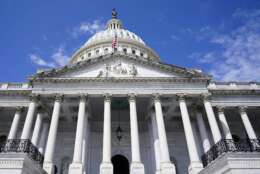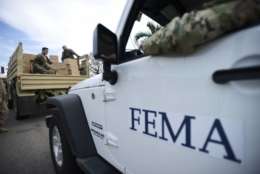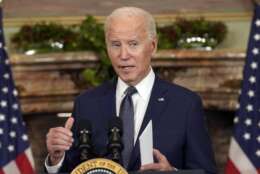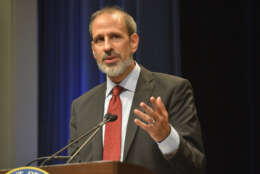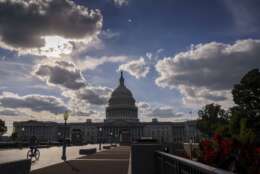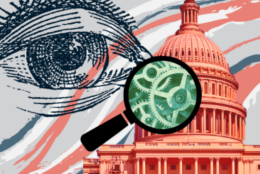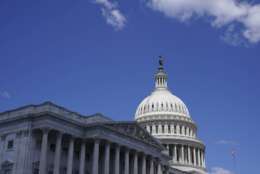Management
-
The government is open on this short holiday week – and it will stay that way through at least the first couple months of the new year. That is thanks to a continuing resolution Congress passed and the president signed late last week. But the way Congress went about it is going to make things complicated – and maybe harder to pass full appropriations bills for 2024. For more on this, Federal News Network Deputy Editor talked with Mitchell Miller, WTOP Capitol Hill correspondent.
November 20, 2023 -
In today's Federal Newscast: Postponing maintenance at federal buildings is costing the government $22 billion. The White House has temporarily filled a top cyber job. And a Senate committee has taken a big step to help end the hold on nearly 370 military nominations.
November 20, 2023 -
The Federal Emergency Management Agency (FEMA) wants everybody to be as prepared for natural disasters as they can be. But FEMA’s placing a new emphasis on older adults, who are more susceptible to the consequences of disasters. A new disaster preparedness guide tries to help local emergency managers and other stakeholders deal with that reality. For more, Federal News Network Deputy Editor Jared Serbu talked with Sherman Gillums, the Director of FEMA’s Office of Disability Integration and Coordination on the Federal Drive with Tom Temin.
November 17, 2023 -
On today's Federal Newscast: The Defense Department is still the only federal department that's never earned a clean audit opinion. GOP lawmakers are trying to override a controversial cybersecurity regulation. And locality pay strikes again, as more than 33,000 federal employees will see additional raises in January.
November 17, 2023 -
Biden signs a bill averting a government shutdown for now, with Israel and Ukraine aid still stalled
President Joe Biden has ended the immediate threat of a government shutdown, signing a temporary spending bill a day before much of the government was to run out of money. The bill maintains existing funding levels. It pushes a fight with congressional Republicans over the federal budget into the new year, when GOP lawmakers in the House are vowing to exact stiff spending cuts. It splits the deadlines for passing full-year appropriations bills into two dates: Jan. 19 for some federal agencies and Feb. 2 for others. The measure does not include any wartime aid for Ukraine or Israel, nor does it offer humanitarian funding for Palestinians.
November 17, 2023 -
Mike McCord, the undersecretary of defense (comptroller)/chief financial officer, said the Department of Defense will be impacted by more continuing resolutions, particularly if it leads to a sequestration, but it will not furlough personnel if that happens
November 16, 2023 -
Congress has ended the threat of a government shutdown until after the holidays. The Senate gave final approval to a temporary government funding package Wednesday night and sent it to President Joe Biden for his signature. The bill sets up a final confrontation on the government budget in the new year. The Senate worked into the night to pass the bill with days to spare before government funding expires Saturday. The spending package keeps government funding levels at current levels for roughly two more months while a long-term package is negotiated.
November 16, 2023 -
Another shutdown countdown is upon us. If you're thinking, "didn't we just go through one?" You're right. All this uncertainty is taking a toll on agency operations and the folks that run the places. To get an idea of how these constant battles could effect things going forward, Federal Drive Executive Producer Eric White spoke with Max Stier, President and CEO of the Partnership for Public Service.
November 15, 2023 -
A new report from the U.S. Election Assistance Commission (EAC) tested the durability of a new kind of way for people to vote. Electronic poll books, or e-poll books, look to replace paper records and allow access to digital voter registration records. As you can imagine though, with convenience comes the opportunity for that information to fall into the wrong hands. So have should e-poll books be secured? To dive into the topic, Federal Drive Executive Producer Eric White talked with Christy McCormick Chairwoman of the EAC.
November 15, 2023 -
The chairman of the PRAC argues a big-data system set up to investigate pandemic fraud could help prevent improper payments across all federal spending.
November 15, 2023 -
In today's Federal Newscast: A Fort McNair Army civilian is guilty of charging thousands of dollars on a GSA gas card. A deputy archivist ends her federal service after more than three decades. And the Pentagon has a new responsible artificial intelligence toolkit.
November 15, 2023 -
The House has voted overwhelmingly to prevent a government shutdown. New Republican Speaker Mike Johnson was forced to reach across the aisle to Democrats when hard-right conservatives revolted against his plan.
November 14, 2023 -
But with agencies — including GSA — embracing the benefits of a long-term hybrid and remote workforce, Carnahan said her agency sees an opportunity to reduce the government’s real-estate footprint by up to 30%.
November 14, 2023 -
Jennifer Wendell, the Department of Health and Human Services deputy CIO, will serve as acting CIO until a permanent one is hired.
November 14, 2023 -
It will be this new congressional leadership's first test to try and avoid a government shutdown. As usual, the ones who will be doing most of the watching will be federal contractors. There is a new initiative from the White House though, that will give them plenty to keep busy while the waiting game ensues. To get a pulse check on the contracting industry, Federal Drive Executive Producer Eric White talked with David Berteau, President and CEO of the Professional Services Council.
November 14, 2023

